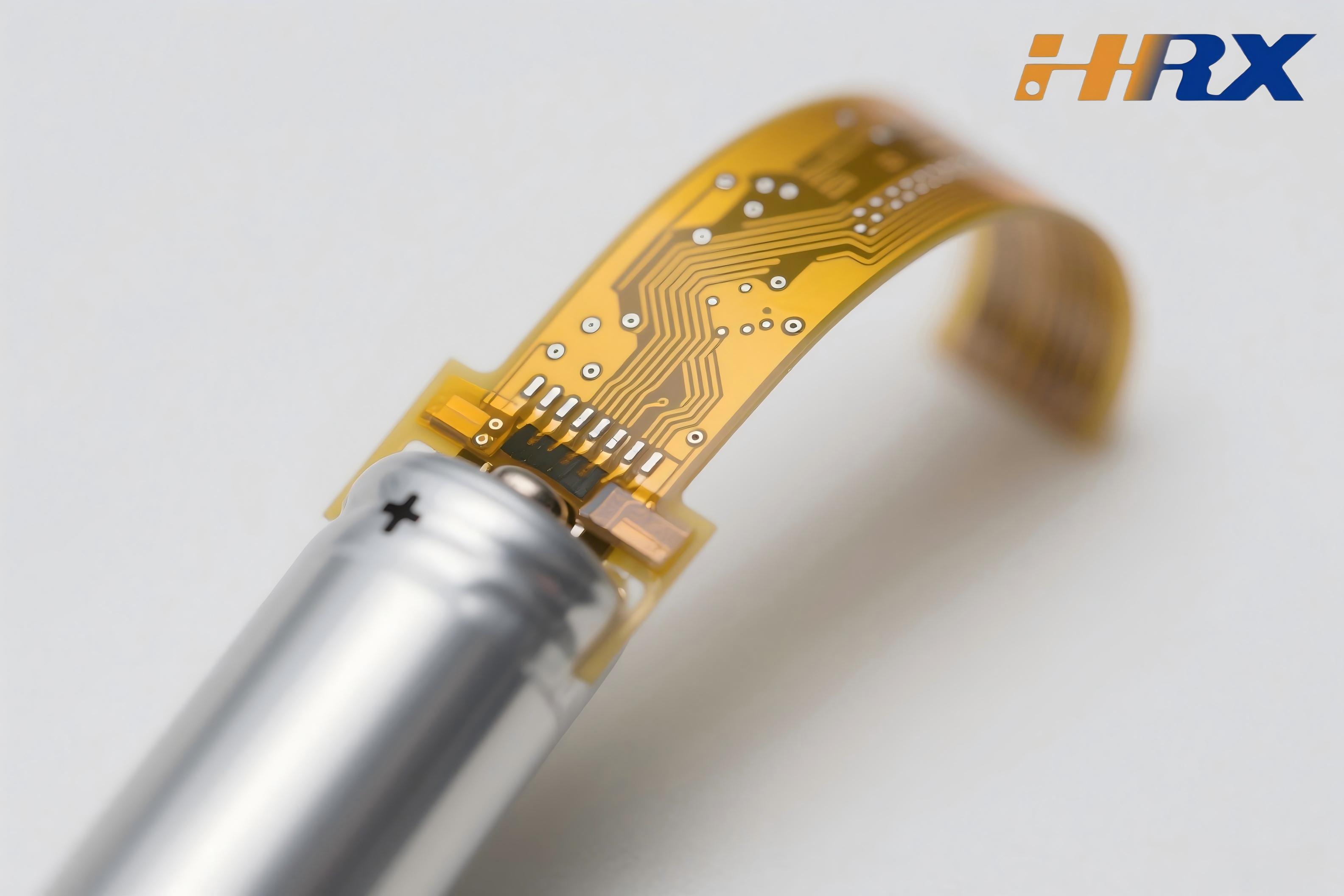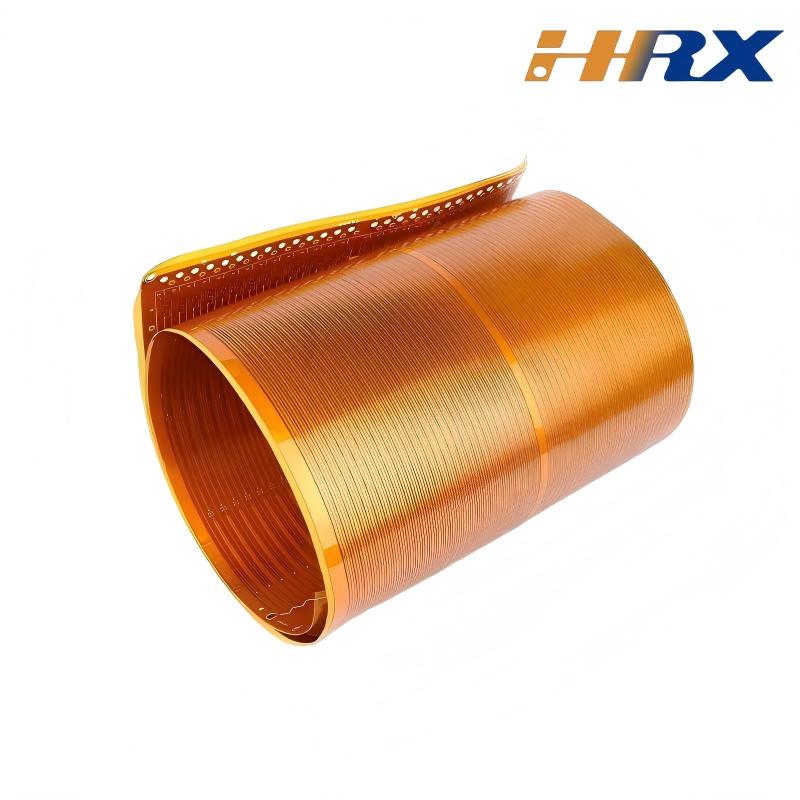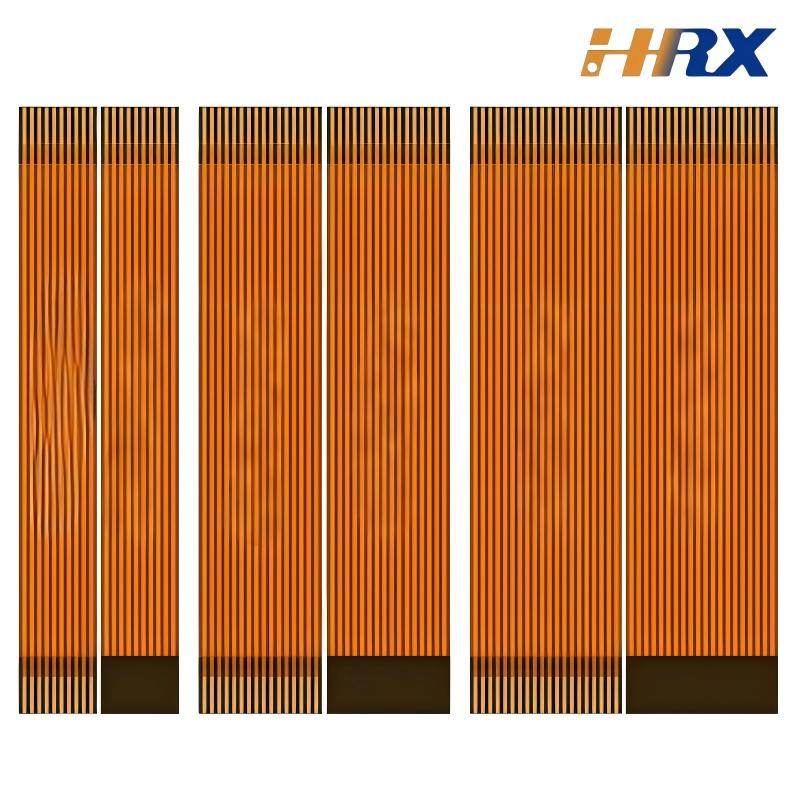Search
Quality Control Disparities of FPCs in the Battery Sector: A Comparative Analysis with Other Industries
- Jun 17,2025
-
Share
In the ever-evolving realm of Flexible Printed Circuits (FPCs), quality control (QC) stands as the cornerstone for ensuring product reliability, performance, and market competitiveness. FPCs, with their versatility and space - saving advantages, are deployed across a plethora of industries. However, the battery sector presents a distinct set of QC challenges and requirements that diverge significantly from those in other fields. As Shenzhen Huaruixin Electronics Co., Ltd., a globally recognized ODM/OEM manufacturer specializing in FPCs, PCBs, and Rigid - Flex Printed Boards, with a particular emphasis on battery - specific FPCs, we leverage our extensive expertise to dissect these QC disparities and highlight the key considerations.

1. Hyper - Precise Electrical Performance Specifications
In the battery industry, FPCs are integral components of Battery Management Systems (BMS). These FPCs are tasked with the critical functions of monitoring voltage, current, and temperature in real - time. Unlike FPCs utilized in consumer electronics, which may primarily focus on basic signal transmission (e.g., in smartphones), Battery Management System (BMS) FPCs demand unparalleled electrical precision. Even the slightest deviation in parameters such as impedance, capacitance, or resistance can lead to inaccurate battery status readings. This, in turn, can trigger severe safety hazards, including overcharging, over - discharging, or thermal runaway.
For example, in Electric Vehicle (EV) battery applications, where high - amperage currents are the norm, EV battery FPCs must maintain stable electrical conductivity under fluctuating loads and dynamic operating conditions. Our QC protocol encompasses in - depth electrical testing methodologies. We employ micro - ohmmeters for highly accurate resistance measurements and conduct high - voltage insulation tests to ensure that the FPCs adhere to the most stringent electrical performance benchmarks. Additionally, we perform impedance spectroscopy to analyze the frequency - dependent electrical behavior of the FPCs, providing a comprehensive assessment of their electrical integrity.
2. Rigorous Environmental Stress Testing Regimes
Batteries are frequently exposed to a wide range of harsh environmental conditions, and the FPCs embedded within them must be engineered to withstand these extremes. When compared to FPCs used in sectors such as medical devices or automotive infotainment systems, battery FPCs encounter more severe temperature and humidity variations. For instance, FPCs in outdoor energy storage systems are subjected to sweltering summer heat and frigid winter cold, while those in EV batteries experience temperature fluctuations during rapid charging and discharging cycles.
Our QC process for battery FPCs incorporates a battery of rigorous environmental tests. Temperature cycling tests, spanning from - 40°C to 85°C, are conducted to simulate the thermal stresses experienced in various operational scenarios. Highly Accelerated Stress Humidity (HASS) tests are also performed to evaluate the FPCs' resilience against moisture - induced degradation. These tests are designed to replicate real - world usage conditions as closely as possible, ensuring that the FPCs maintain their mechanical and electrical integrity over extended periods. In contrast, FPCs in many other industries may only be required to pass less demanding environmental qualification tests.
3. Safety - Centric Regulatory Compliance
Safety is non - negotiable in the battery industry, and FPCs must comply with strict safety standards and regulations. Although FPCs in industries like aerospace have their own safety - related requirements, the failure of a battery FPC can have catastrophic consequences, including fire, explosion, or toxic gas emissions. As such, battery FPCs must possess inherent flame - retardant properties and offer excellent chemical resistance to prevent degradation caused by electrolyte leakage.
Our QC procedures are meticulously aligned with international safety standards, such as UL 94 for flame retardancy ratings. We conduct flame - resistance tests using standardized methods to ensure that the FPC materials meet the required flammability classifications. Additionally, chemical resistance testing involves exposing FPC samples to common electrolyte solutions, simulating potential leakage scenarios. By closely monitoring the FPCs for any signs of corrosion, swelling, or electrical property degradation, we can safeguard the overall safety and reliability of the battery system.
4. Emphasis on Long - Term Reliability and Durability
Batteries are typically designed for long - term use, and the FPCs within them must match this extended service life. Unlike FPCs used in short - lived consumer products, such as disposable cameras or certain promotional gadgets, battery FPCs undergo comprehensive long - term reliability testing. Fatigue testing is a crucial part of our QC process, where FPCs are subjected to thousands of repetitive flex cycles to simulate the bending stresses experienced during battery installation, operation, and maintenance.
Accelerated aging tests are also carried out to predict the FPCs' performance degradation over time. These tests involve exposing the FPCs to elevated temperatures, humidity, and electrical loads to accelerate the aging process. By continuously monitoring parameters such as insulation resistance, conductor resistance, and signal integrity during these tests, we can accurately assess the FPCs' ability to function reliably throughout the entire battery lifecycle.
Crucial Considerations for Battery FPC Quality Control
Material Selection and Characterization: The choice of materials is paramount for battery FPCs. High - quality, flame - retardant, and chemically resistant materials should be selected. Polyimide films, renowned for their exceptional thermal stability, mechanical strength, and chemical resistance, are commonly used as the base material for battery FPCs. Additionally, advanced materials with enhanced electrical insulation properties and low dielectric constants can be considered to meet the specific requirements of high - frequency applications. Material characterization techniques, such as differential scanning calorimetry (DSC) and thermogravimetric analysis (TGA), can be employed to evaluate the thermal properties and stability of the materials.
Manufacturing Process Optimization and Control: Every stage of the FPC manufacturing process, from circuit layout design and photolithography to etching, soldering, and Flexible Printed Circuit (FPC) lamination, must be tightly controlled. In - line inspection systems, including automated optical inspection (AOI) and X - ray inspection, should be integrated at multiple process steps to detect and rectify defects promptly. Process parameters, such as temperature, pressure, and time during soldering and lamination, should be precisely optimized and monitored to ensure consistent product quality.
Traceability and Quality Assurance Systems: Establishing a comprehensive traceability system is essential for effective quality control. Each FPC should be uniquely identified, and detailed records of raw material batches, manufacturing dates, production line information, and operator details should be maintained. This traceability enables quick identification and resolution of quality issues, as well as facilitates continuous improvement of the manufacturing process. Robust quality assurance systems, including statistical process control (SPC) and failure mode and effects analysis (FMEA), should be implemented to proactively identify potential quality risks and take preventive measures.
At Shenzhen Huaruixin Electronics Co., Ltd., our specialized manufacturing facilities, coupled with our years of experience in the design and development of battery FPCs, position us as a trusted partner for meeting the exacting QC requirements of the battery industry. Whether you are working on Electric Vehicle (EV) battery projects, energy storage systems, or other battery - related applications, and have FPC project requirements, we invite you to get in touch with us. For more in - depth industry knowledge, technical insights, and to explore potential collaborations, visit our website at www.hrxfpc.com or send an email to sales@hrxfpc.com. We look forward to engaging in professional exchanges, learning from each other, and providing tailored solutions to your FPC needs.

Let’s talk! We’ll provide the perfect solution for you!
-
 Huaruixin Electronics mainly produces printed circuit boards as the core business, to provide customers with one-stop solutions for FPC/PCB production, components sourcing and Assembly.
Huaruixin Electronics mainly produces printed circuit boards as the core business, to provide customers with one-stop solutions for FPC/PCB production, components sourcing and Assembly. - WHAT WE DO — PCB Design Solutions — Flex PCB Production — Components Sourcing — FPC&PCB Assembly
- PRODUCTS — Single Sided Flexible Circuits — Double Sided Flexible Circuits — Multilayer Flexible Cirucits — Rigid-Flex Circuits — FPC Assembly — PCB Assembly
- CAPABILITY — FPC Capability — Rigid-Flex Capability — PCB Capability — Assembly Capability
- Copyright © 2024 Shenzhen Huaruixin Electronics Co., Ltd. All Rights Reserved.
- Design By BONTOP


